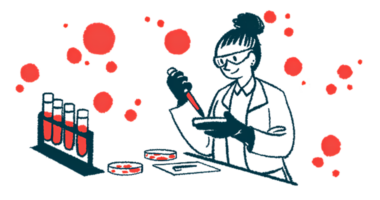Vyant Bio, OrganoTherapeutics Will Use Organoids for New Therapies

Vyant Bio and OrganoTherapeutics are teaming up to speed the discovery of new candidates for treating Parkinson’s disease.
The collaboration will leverage OrganoTherapeutic’s patient-derived “mini-brains” — midbrain organoids — derived from induced pluripotent stem cells (iPSCs) and Vyant Bio’s expertise in machine learning technology to identify new therapies.
“We are pleased to announce this collaboration with OrganoTherapeutics as they bring deep knowledge and innovative approaches to Parkinson’s Disease-based drug discovery,” Robert Fremeau, PhD, Vyant Bio’s Chief Scientific Officer, said in a press release.
“This collaboration with OrganoTherapeutics is another example of Vyant Bio’s commitment to accelerate the discovery and development of transformative therapies for patients living with severe CNS [central nervous system, brain and spinal cord] diseases,” he added.
Organoids have become increasingly useful for studying the mechanisms of human diseases and as a tool to test patients’ responses to therapies. They are derived from stem cells and grown as a three-dimensional structure capable of self-organizing and mimicking features of the original tissue.
iPSCs can be used to generate any kind of organoid. They are fully matured cells reprogrammed back to a stem cell state and able to grow into almost any type of cell.
OrganoTherapeutics has developed midbrain organoids from multiple Parkinson’s disease patients as part of an effort to understand the human features of the disease and develop tailored therapeutics according to patients’ genetic backgrounds.
“The specific genetic and environmental causes in most Parkinson’s patients are unknown. By focusing initially on disease-linked genetic mutations, we plan to identify common causes and potential therapeutic approaches that can be expanded into the much larger patient population. We look forward to integrating our approaches with Vyant Bio,” Jens Schwamborn, PhD, co-founder and CEO of OrganoTherapeutics, said.
Vyant Bio’s AnalytiX platform, powered by machine learning, is a high-throughput, human-based therapeutic discovery that allows potential targets and disease biomarkers to be analyzed and identified.
“We know that therapies for diseases that affect the CNS are difficult to discover: it requires meaningful innovation and exceptional scientific expertise to tackle,” Jay Roberts, CEO of Vyant Bio, said. “This collaboration is another in a series of strategic moves to focus our efforts while accelerating our position in drug discovery through the use of technologies that allow insight into human biology early in the discovery of CNS drugs.”







